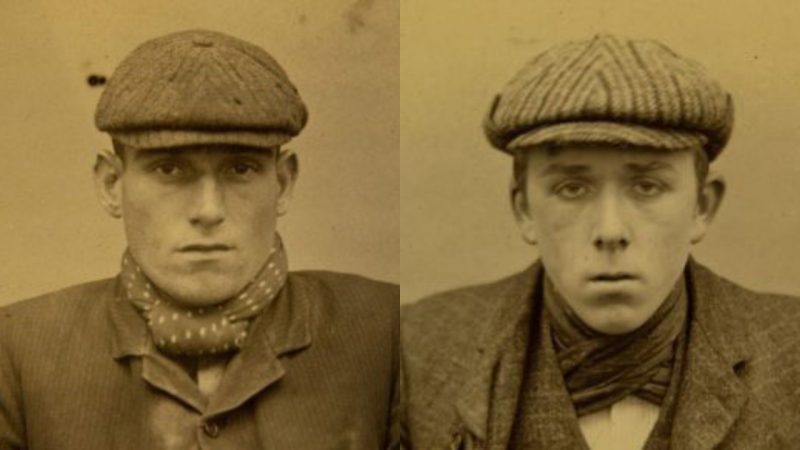The grimy industrial underworld of the BBC’s hit period drama Peaky Blinders may not be entirely accurate, but the truth is just as deadly.
Peaky Blinders, which began airing in 2013, follows the Irish-Romani Shelby family led by the mercurial Tommy (played by Cillian Murphy) as he takes on some of the biggest underworld figures in 1920s Britain.
He’s joined by his aunt Polly Grey (Helen McRory), brothers Arthur (Paul Anderson) and John Shelby (Joe Cole), and sister Ada Shelby (Sophie Rundle).
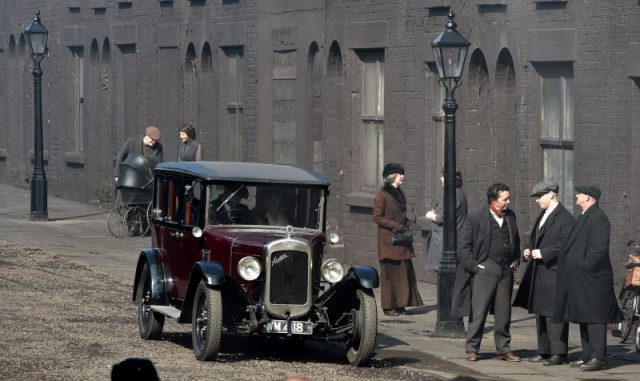
For the rich and powerful, it may have been an era of flappers, jazz, cocktails and art deco, but for the urban working class life was tough, especially in the sprawling, smoke-choked cities of the Midlands and the North which had exploded during the 19th century Industrial Revolution.
As in the TV show, Birmingham was terrorized by a vicious gang called the Peaky Blinders, but they prowled the streets in the 1890s and the early 1900s, not the 1920s.
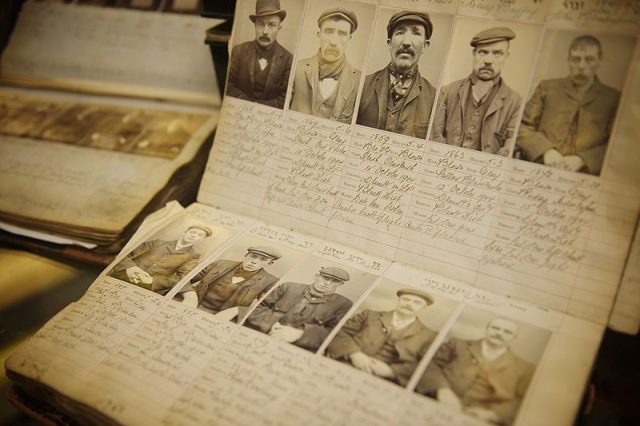
Like the gang in the TV show, the real Peaky Blinders were most likely founded in the working class Small Heath area of Birmingham and recruited young men from the English, Irish and Romany (known as “Gypsies”) communities. The most active members were David Taylor, Earnest Haynes, Harry “Baby-Faced Harry” Fowles, Stephen McNickle, and Thomas Gilbert.
Though the gang’s hierarchy as loose. Gilbert, also known as Kevin Mooney, was their nominal boss, although the earliest newspaper reports suggest they were founded by a man named Thomas Mucklow in 1890.
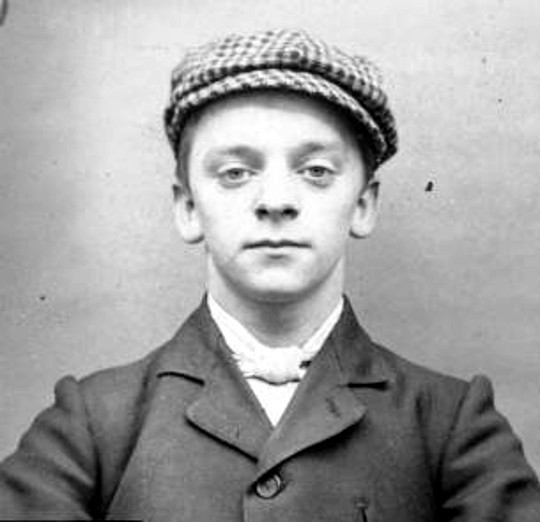
As with the first season of the Peaky Blinders TV show, an Irish police officer was called in to bring order to the wild West Midlands, and he too was thwarted by high levels of corruption among his colleagues. Rather than a high profile chief inspector like the show’s Chester Campbell (played by Sam Neil), this Irish lawman was a regular constable.
https://youtu.be/t121Dj_6cro
However, unlike Tommy Shelby’s ambitious and well-oiled family firm, the historical Peaky Blinders were primarily interested in violent crimes, robbery and racketeering, and a police record from 1904 described the gang as “foul-mouthed young men who stalk the streets in drunken groups, insulting and mugging passers-by.”
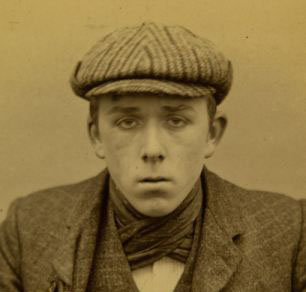
The Peaky Blinders flaunted their membership of the gang with smartly tailored “uniforms” of buttoned jackets, bell-bottoms, steel toe-capped boots, and of course, their peaked caps. The wealthier members (and their wives and mistresses) flaunted the gang’s wealth with silk scarves and starched collars with metal tie buttons.
Historian Professor Carl Chinn, author of The Real Peaky Blinders (2014), told BirminghamLive that the origin of their name presented in the show — that they had wickedly sharp razor blades sewn into the brim so they could slash their foes across the eyes, blinding them with blood — is most likely a myth.
“Peaky” simply refers to a peaked cap, whereas in the slang of the time a “blinder” is someone well dressed — reference to their signature style.
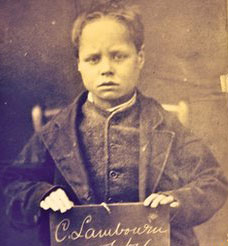
“As for the razor blades?” said Chinn. “They were only beginning to come in from the 1890s and were a luxury item, much too expensive for the Peaky Blinders to have used.
“And any hard man would tell you it would be very difficult to get direction and power with a razor blade sewn into the soft part of a cap. It was a romantic notion brought about in John Douglas’s novel, A Walk Down Summer Lane.”
Originally published in 1977, A Walk Down Summer Lane was inspired by the author’s own childhood in Birmingham, and included the verse:
“Near Summer Lane two men stopped by; a tear showed in the elder’s eye;
Looked down ‘The Lane’ and gave a sigh ‘Summer Lane’s no more, lad.
Summer Lane belied its name, a blue bricked street of slums and shame,
Of back-to-backs and drunken fame, the toughest street in Brum, lad.
I was born in Newtown Row – down Summer Lane we dursen’t go,
To show our face because, you know, they’re always fighting drunk, lad.
They’d shop their gran for two and six, or blind your eyes with brutal flicks,
Of ‘peaky blinders’ – just for kicks – but only just in fun, lad.’ ”
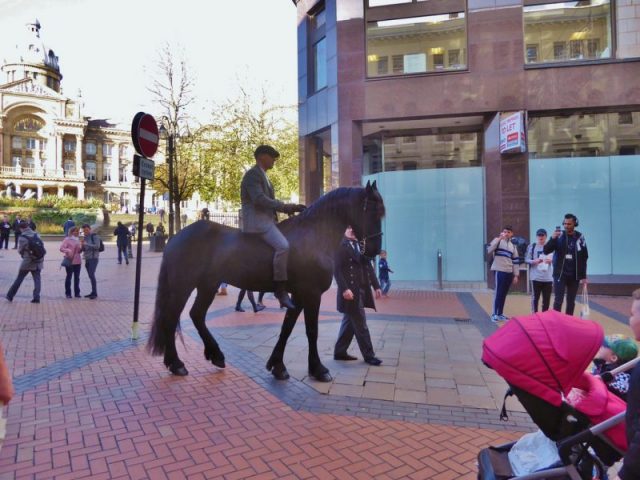
While the Peaky Blinders may have given their name to their on-screen counterparts, Chinn believes that a later gang — the Brummagem Boys, who were active in the years leading up to the First World War and displaced the Peaky Blinders as the apex predator in the city — are a closer match. He describes them as a “loose collection of pick-pockets, racecourse thieves and pests who were gaining a lot of power.”
By the 1920s, many of the Brummagem Boys had joined the larger Birmingham Gang, led by a man whose name will be familiar to fans of the TV show: Billy Kimber (played by Charlie Creed-Miles in the first season).
“This didn’t just happen overnight,” explained Carl. “They operated in small local groups who came together in force when needed. They weren’t specific to one street and most of the trouble happened away from Birmingham.
https://youtu.be/t121Dj_6cro
“So it’s probable that the ordinary people of Birmingham at the time would not have been aware they existed. They’d only have known of perhaps the odd individually feared man in a pub.”
Like the on-screen Peaky Blinders, many of the Birmingham Gang’s blood-knuckled enforcers had seen action in the First World War, but Chinn is keen to downplay the role that the conflict had in defining their dangerous and unpredictable personalities.
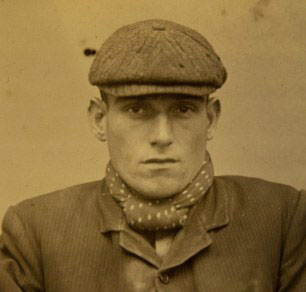
“Billy Kimber deserted during the war,” he said “Although he and others in the gang may have been traumatized by the war, they were mostly violent men before the war.”
“The fighting they did was vicious fighting. Kimber was a very intelligent man with fighting ability, a magnetic personality and shrewdness of the importance of an alliance with London.”
Unlike the fictional Kimber, who met his match in Tommy Shelby, the real boss was instead brought down by the Sabini Gang, an Italian mob operating out of London’s East End and led by the infamous Derby Sabini (played by Noah Taylor in the second season).
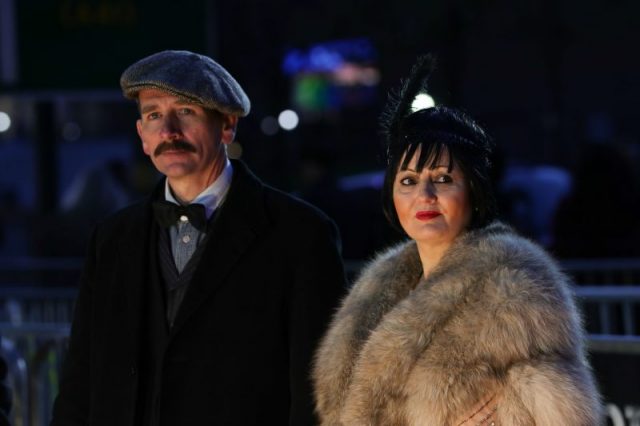
Chinn assured BirminghamLive that he had no wish to glorify the violent actions of these long-dead thugs and gangsters.
Read another story from us: Trailer for Mel Gibson’s Controversial Dictionary Drama finally Released
“In writing the book, I’m not excusing this behavior. It’s not about romanticizing it because, in reality, it was brutal.”
“A lot of national newspapers become hysterical about gang fights but it’s important to remember they were nothing like the American Mafia. These aren’t admirable people but I think it is a story that should be told.”
